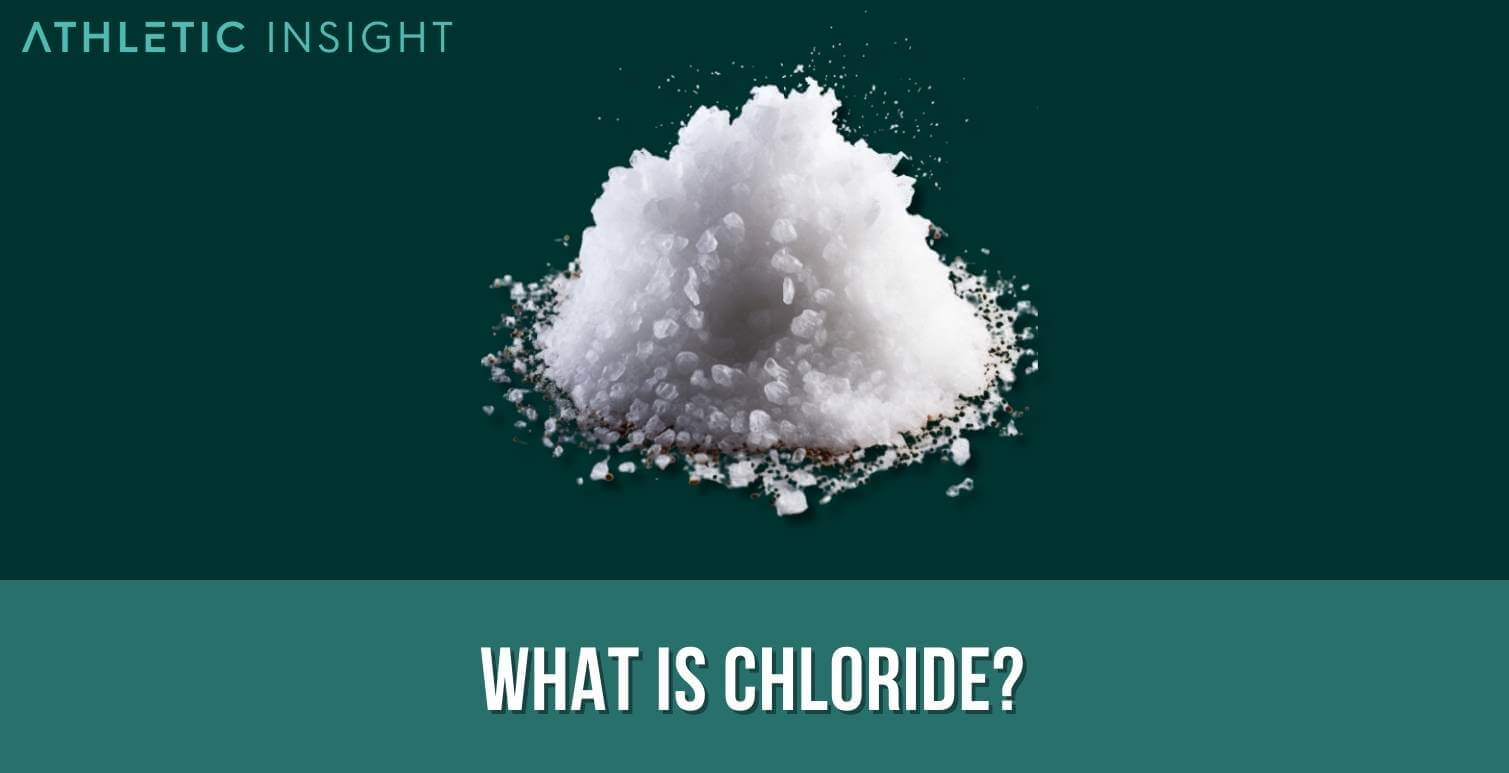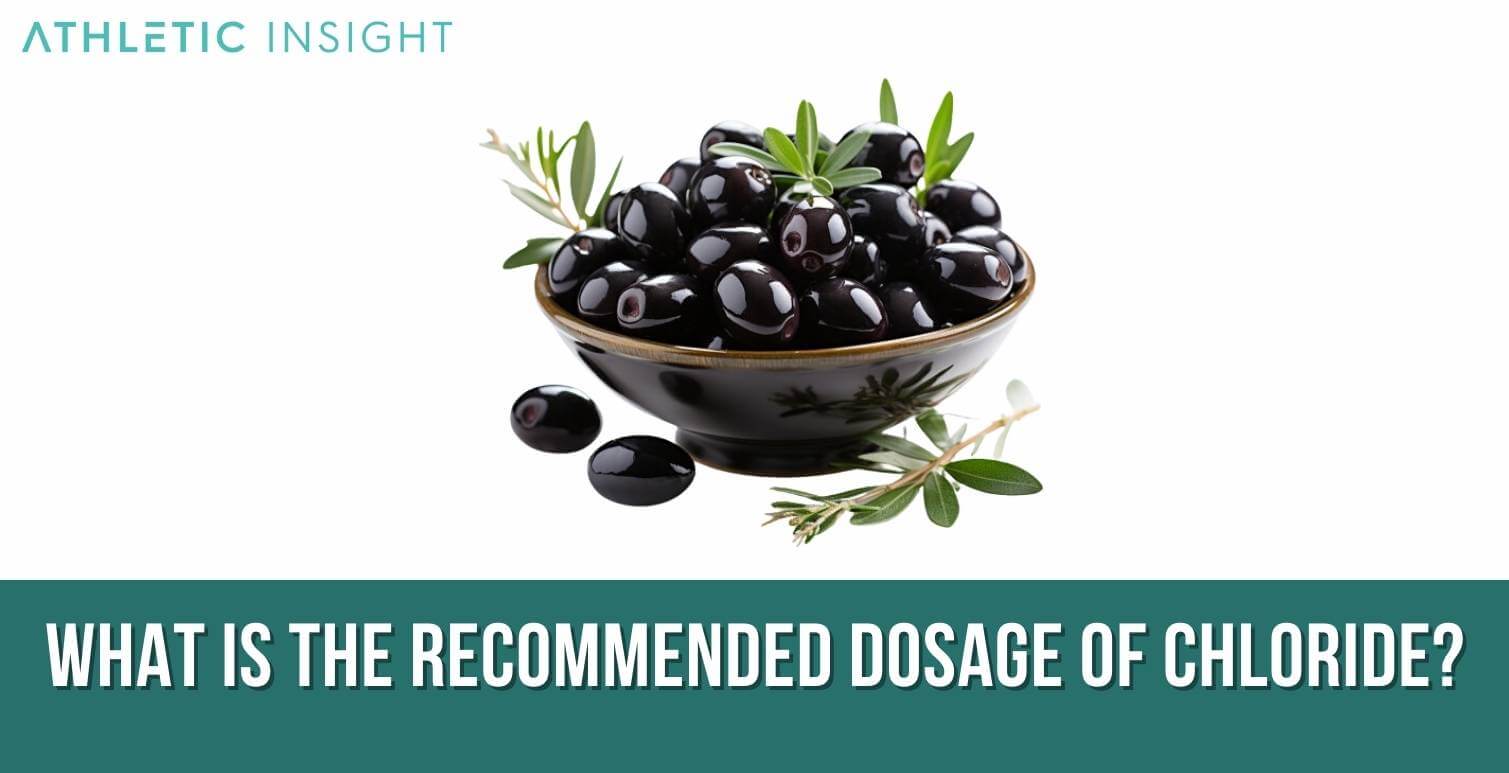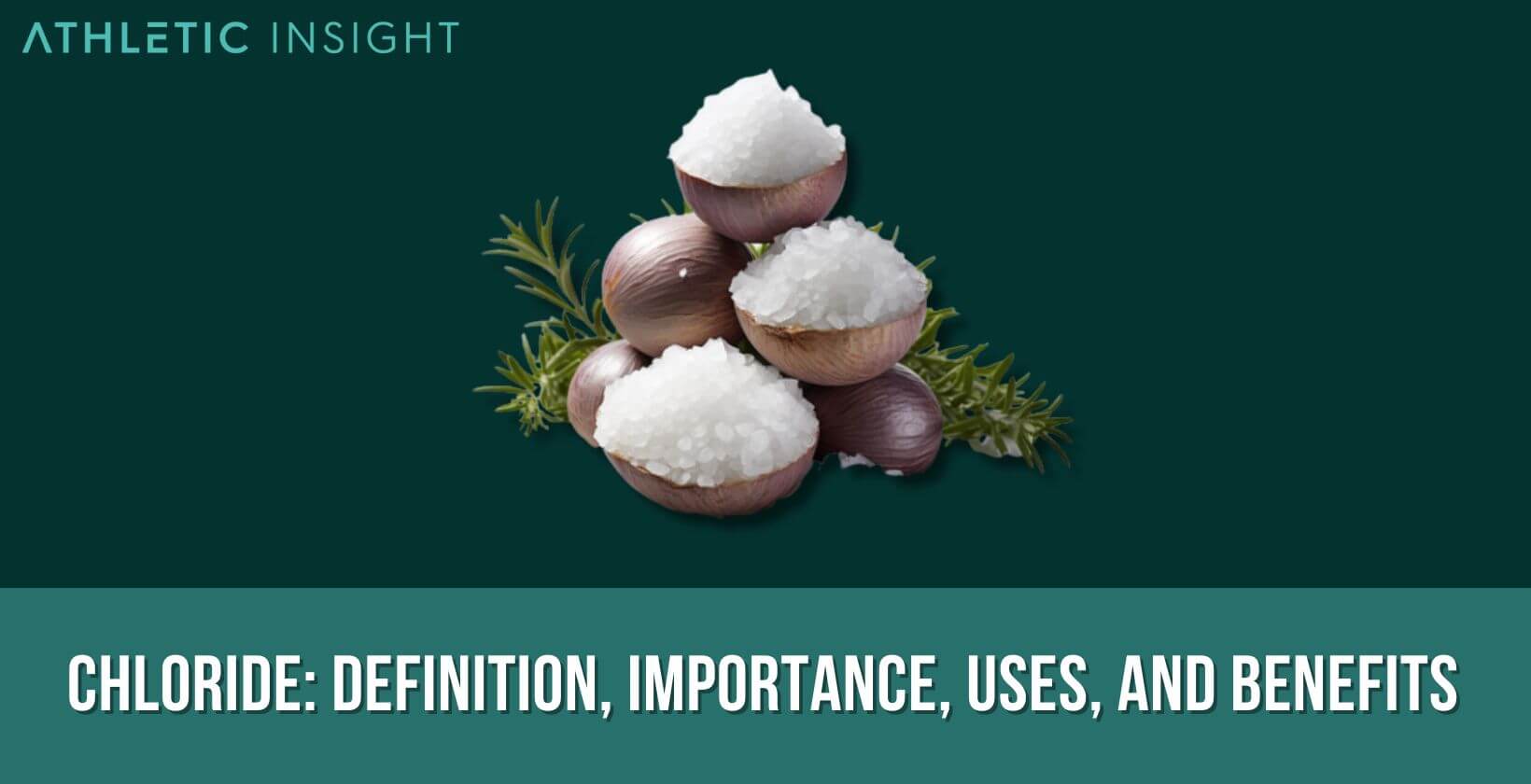Unveiling the mysteries of nature often brings to light elements of profound significance, one such being Chloride. Embedded in the heart of every living system, Chloride, plays an instrumental role in one’s well-being. The following article takes a comprehensive dive into the topic of Chloride, unraveling its definition, shedding light on its vital role, unmasking its uses, and highlighting the plethora of benefits it offers.
What is Chloride?
Chloride refers to a negatively charged ionic form of the element Chlorine. Its presence predominates within the extracellular fluid of your body. This vital electrolyte contributes to a staggering 70% of the total negative ion content, substantiating its pivotal role in maintaining the body’s overall homeostasis. It not only balances the pH but also plays a crucial role in nerve impulse transmission and digestion.

Apart from this, Chloride also assists in various enzymatic activities, enhancing the digestion process. The evidence supporting Chloride’s importance can be seen in various biological processes where it plays an integral role, thus making it a cornerstone of your body’s functioning.
Is Chloride an Essential Nutrient?
Yes, Chloride is an essential nutrient. Its indispensability in the body can be understood by its role in the fluid and pH balance. Moreover, Chloride is a critical component of gastric acid (hydrochloric acid), which is vital for digestion and absorption of nutrients.
Its presence ensures the smooth functioning of many biological processes, thus making Chloride an essential nutrient. Its role in the digestion and absorption of nutrients, maintenance of fluid balance, and pH regulation underscores its essentiality.
Is Chloride a Mineral?
No, in scientific parlance, Chloride is not classified as a mineral. However, it is often grouped under the umbrella of dietary minerals due to its necessity for biological functioning. In essence, Chloride is a type of electrolyte, functioning in conjunction with other electrolytes such as potassium and sodium, to facilitate electrical impulses that drive numerous body functions.
Its categorization may be debatable, but its role in the body is indisputable. The harmony between Chloride, potassium, and sodium helps in the conduction of electrical impulses, ensuring the proper functioning of various systems, especially the nervous system.
What is the Importance of Chloride in Nutrition?
The role of Chloride in nutrition is highly crucial. As a critical electrolyte, Chloride assists in maintaining the body’s acid-base balance, blood volume, blood pressure, and pH of body fluids. The cooperation between Chloride, sodium, and potassium is vital for the transmission of nerve impulses and the facilitation of muscle contractions.
Without the assistance of Chloride, the normal functioning of one’s body systems would be greatly impaired. The presence of chloride in the body is vital, thus, making it one of the pillars of one’s nutritional requirements.
How does Chloride Work?
Chloride works harmoniously with other electrolytes to regulate the osmotic pressure, ensuring the right balance between fluid and electrolytes in the body. Additionally, Chloride is a key player in the stomach, where it combines with hydrogen to form hydrochloric acid, a powerful digestive enzyme.
The transportation of Chloride ions across the cell membranes is critical for maintaining the resting potential of neurons. This highlights its important role in nerve impulse transmission, further establishing the importance of Chloride in one’s bodily functioning.
What are the Different Types of Chloride?
The term Chloride predominantly represents the ionic form of Chlorine. However, a broader perspective would reveal the existence of several compounds that contain Chloride ions. Some of these include Sodium Chloride (common table salt), Potassium Chloride, Calcium Chloride, and Magnesium Chloride.
- Sodium Chloride
- Potassium Chloride
- Calcium Chloride
- Magnesium Chloride
Each type presents unique properties and uses. For instance, Sodium Chloride, popularly known as table salt, is the most commonly consumed form of Chloride, owing to its pivotal role in maintaining electrolyte balance and contributing to nerve and muscle function.
What are the Uses of Chloride?
The sphere of Chloride’s usage extends beyond the boundaries of one’s body. Apart from being a vital electrolyte, Chloride finds its use in various industrial applications and medicinal uses. In medicine, Chloride finds its place in intravenous fluid that is used to rectify dehydration and electrolyte imbalances.
Beyond the realm of medicine, industries have discovered myriad uses for Chloride. From water purification to manufacturing plastics and other chemicals, Chloride’s versatility makes it indispensable. In one’s home, Chloride, as a part of table salt, is an essential ingredient in daily culinary practices.
What is the Recommended Dosage of Chloride?
The daily intake of Chloride, for an average adult, is recommended to be around 1.8 grams to 2.3 grams. Consuming an adequate amount of Chloride is necessary for the body’s fluid regulation, nerve function, and digestion. A balanced diet usually suffices to meet this requirement.

Having an optimal Chloride count is necessary for the body’s well-being. Either an excess or a deficit can lead to complications. Therefore, it is crucial to ensure that the intake of Chloride is well within the recommended limits.
What Will Happen When You Have Too Much Chloride?
Hyperchloremia, the condition arising from high Chloride levels in the body, could lead to various complications. Dehydration, kidney diseases, and certain metabolic disorders could potentially arise from an excess of Chloride.
Symptoms may vary, but can include fatigue, muscle weakness, and in severe cases, hypertension and compromised renal function. Therefore, maintaining an optimal level of Chloride in the body is of utmost importance.
What Will Happen When You Have Less Chloride?
Contrarily, Hypochloremia is a condition resulting from low levels of Chloride. This could be caused due to excessive loss of body fluids through prolonged vomiting or diarrhea, and certain kidney diseases.
The implications of this condition could include fluid loss or dehydration, imbalance in the body’s pH level, and disturbances in electrolyte balance. Hence, the presence of Chloride in the right amounts is critical for the body’s normal functioning.
How is Chloride Used in Sports Nutrition?
In the realm of sports nutrition, Chloride is highly valued for its role in hydration and maintaining electrolyte balance. It is key in the rapid replenishment of lost fluids and electrolytes during strenuous physical activities, thus preventing muscle cramps and enhancing overall performance.
Athletes are often recommended to consume electrolyte-rich drinks, which contain Chloride, to keep their bodies well-hydrated and to ensure the proper functioning of muscles during strenuous activities.
Does Chloride Prevent Electrolyte Imbalance?
Yes, Chloride is fundamental in preventing electrolyte imbalance. As a primary anion in the body, it works hand in hand with other electrolytes to maintain the osmotic balance, which is critical for the normal functioning of cells and organs.
Chloride, in conjunction with other electrolytes, maintains the body’s fluid balance, thus preventing the onset of electrolyte imbalance. Its deficiency or surplus could lead to numerous complications, underscoring the necessity to maintain the right balance.
Does Chloride Help in Hydration?
Yes, Chloride plays a significant role in maintaining hydration in the body. It aids in the process of osmosis, which involves the movement of fluid between different compartments of the body.
Chloride ions help to retain water in the body, thus preventing dehydration. Its role in the body extends to ensuring the smooth functioning of the body’s mechanisms, particularly in maintaining hydration and electrolyte balance.
What are the Foods High in Chloride?
Numerous foods are rich sources of Chloride. These include table salt (sodium chloride), seaweed, rye, tomatoes, lettuce, celery, and olives. Preserved foods also tend to have a high Chloride content due to its preservative properties.
- Salt
- Seaweed
- Rye
- Tomatoes
- Lettuce
- Celery
- Olives

These foods, when included in the diet, can provide the necessary amount of Chloride to the body. However, care must be taken to ensure that the intake is within the recommended limits.
What are the Health Benefits of Chloride?
Chloride provides many health benefits. It aids in maintaining fluid balance, supports digestion, facilitates the transmission of nerve impulses, and regulates pH levels. Chloride also aids in the absorption of nutrients, thus ensuring the body is nourished. It also supports muscle function, aiding in their contractions and overall performance.
- Fluid Balance
- Digestion Support
- Transmission of Nerve Impulses
- Regulates pH Levels
- Nutrient Absorption
What are the Health Risks of Chloride?
Despite the plethora of benefits, an imbalance in Chloride levels can lead to many health issues. Hyperchloremia, caused by high Chloride levels, can lead to dehydration, metabolic acidosis, and kidney disorders. Conversely, Hypochloremia, or low levels of Chloride, could result in metabolic alkalosis, loss of potassium, and severe dehydration. Hence, maintaining a balance in the body’s Chloride levels is paramount.
- Dehydration
- Metabolic Acidosis
- Kidney Disorders
- Metabolic Alkalosis
- Loss of Potassium
- Dehydration
Is Chloride Safe to Consume Every Day?
Yes, chloride is safe to consume every day. In fact, the daily consumption of Chloride is not only safe but essential. However, maintaining balance is key. Excessive or deficient amounts can lead to health complications. Through a balanced diet, it is possible to obtain the necessary amounts of Chloride to fulfill the body’s requirements. The consumption of Chloride, in the right amounts, is vital for the body’s well-being.



